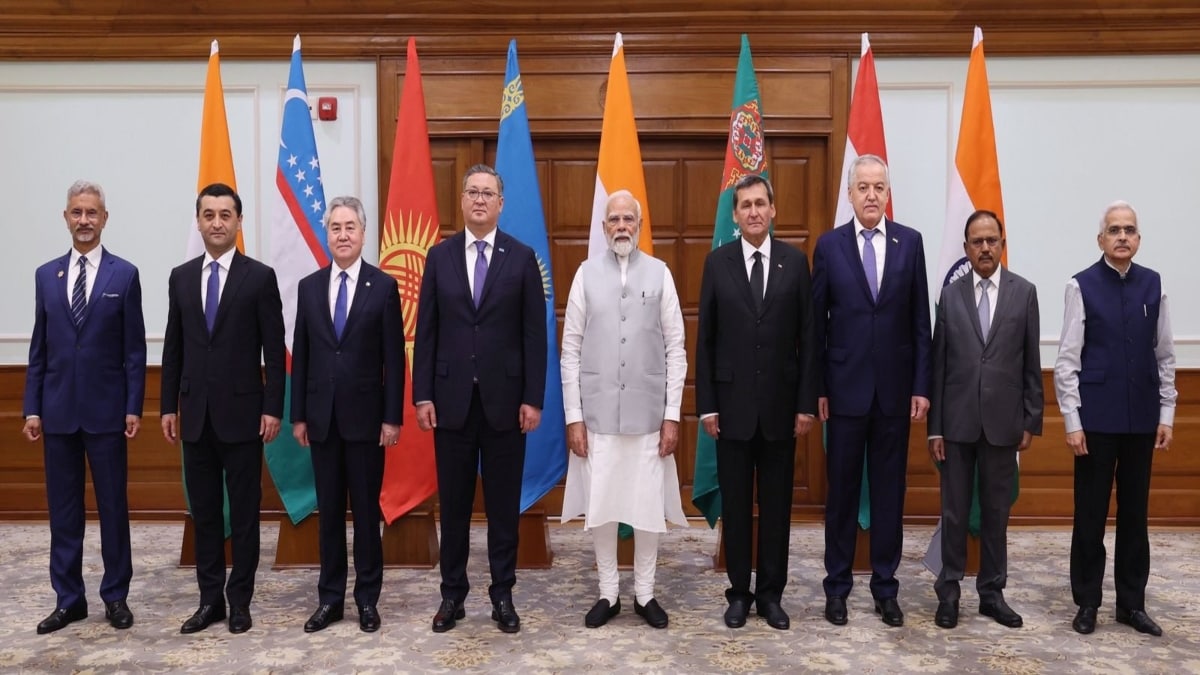

Prime Minister Narendra Modi recently met with the Foreign Ministers of Kazakhstan, Kyrgyz Republic, Tajikistan, Turkmenistan, and Uzbekistan, reaffirming India's commitment to stronger ties and a joint fight against terrorism. The meeting, which took place in New Delhi, followed the 4th India-Central Asia Dialogue, where ministers discussed ways to strengthen relations, focusing on trade, connectivity, technology, and development cooperation.
During the meeting with the Prime Minister, the Foreign Ministers briefed him on the productive discussions held at the Dialogue. Modi emphasized that relations with Central Asian countries are a key priority for India. Building on the foundation of historic people-to-people ties, he shared his vision for enhanced economic interconnections, expanded connectivity, defense and security cooperation, and collaboration in new and emerging areas. He highlighted that a strong India-Central Asia partnership acts as a force multiplier in addressing shared regional and global challenges.
The Central Asian Foreign Ministers strongly condemned the terrorist attack in Pahalgam that occurred on April 22, 2025, and conveyed their support for India's fight against cross-border terrorism. Modi expressed gratitude for their support and reiterated India's firm commitment to combating terrorism. He stated that India stands firm and resolute in its collective fight against this threat.
The Prime Minister extended an invitation to the leaders of all Central Asian countries for the Second India-Central Asia Summit to be held in India.
External Affairs Minister S. Jaishankar also addressed the India-Central Asia Dialogue, appreciating the Central Asian nations for their solidarity in condemning the Pahalgam attack. He noted the deep historical and cultural connections between India and Central Asia, which have evolved into a robust partnership.
Jaishankar highlighted the growth in trade and economic ties over the past decade, facilitated by enhanced connectivity through direct flights and increased two-way tourism and business exchanges. He also emphasized India's role as a trusted development partner, pointing to initiatives such as I-Tech training programs, Indian Council for Cultural Relations (ICCR) scholarships, and High-Impact Community Development Projects.
During bilateral meetings with the Foreign Ministers, Jaishankar discussed expanding security cooperation and boosting trade ties and connectivity initiatives. He emphasized the need to diversify trade and explore mutual settlement in national currencies to leverage India's growing economy.
The participating nations reaffirmed their commitment to fight against terrorism in all its forms and manifestations. They stated that providing safe haven, using terrorist proxies for cross-border terrorism, terror financing, arms and drugs trafficking, dissemination of radical ideology, and abuse of cyberspace to spread disinformation and incite violence all go against the basic principles of humanity and international relations. They stressed that perpetrators, organizers, financiers, and sponsors of terrorist acts must be held accountable and brought to justice and called for early adoption of the UN Comprehensive Convention on International Terrorism.
The ministers also noted the importance of regular consultations among the National Security Councils of India and the Central Asian countries to strengthen efforts to counter terrorism and other emerging challenges in the region.
India has invited Central Asian countries to join initiatives such as the International Solar Alliance (ISA), Global Biofuel Alliance (GBA), International Big Cat Alliance (IBCA), and Coalition for Disaster Resilient Infrastructure (CDRI). The Foreign Ministers of Central Asian countries reiterated their support for India's permanent membership in an expanded and reformed UN Security Council. They also reiterated their strong support for a peaceful and stable Afghanistan free from terrorism, war, and drugs.